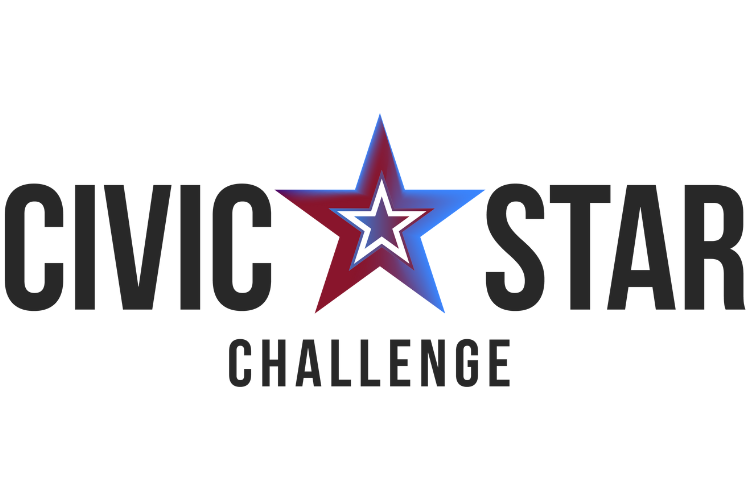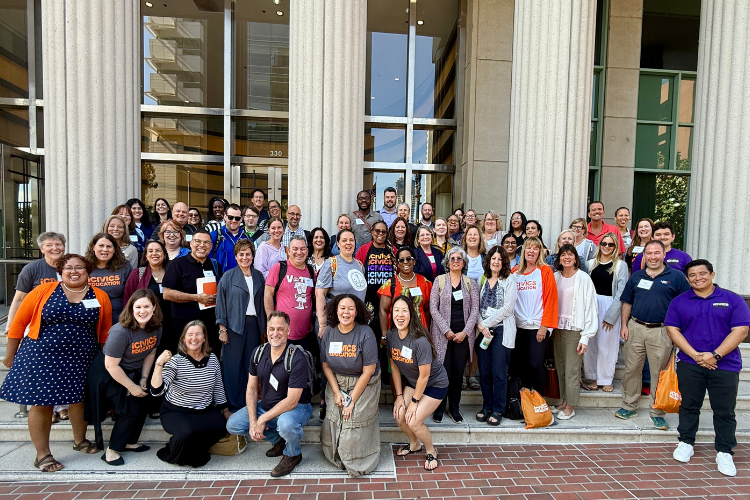WILLIAMSBURG, Va. (Aug. 25, 2025) – iCivics and The Colonial Williamsburg Foundation have released a new online game that shows middle- and high-school students how the Declaration of Independence captured the ideas of the Enlightenment and inspired movements toward freedom and democracy across the Atlantic world during the 18th and 19th centuries.
Investigation Declaration takes place in an alternate time and space where an international crime conglomerate has hacked the fictional Bureau of Ideas, corrupting every file related to freedom, democracy, and individual rights. Players take the role of “Agent 6” as they pursue the origins of these files and discover how ideas spread throughout the Atlantic world in the 100 years following the signing of the Declaration of Independence in 1776.
As students restore the corrupted files, they discover how the ideas of natural rights, state sovereignty, and the social contract spread from Colonial Williamsburg, Paris, and Philadelphia to Haiti, Liberia, and beyond to inspire a wave of declarations of freedom and rights.
Created collaboratively by The Colonial Williamsburg Foundation and iCivics, the game takes notes from classic games such as Where in the World is Carmen San Diego? and includes puzzle and strategy elements of more modern games like Case of the Golden Idol and Return of the Obra Dinn. This complexity aims to help students discover how the ideas that influenced and shaped the Declaration of Independence went on to shape global history. This innovative approach to educational game-making earned Investigation Declaration the prestigious 2025 GEE! Award in the Formal Games category.
Investigation Declaration, which is being released in the lead-up to the 250th anniversary of the signing of the Declaration of Independence, merges the game-building expertise of iCivics and the research and education expertise of The Colonial Williamsburg Foundation. Inspired by historian David Armitage’s 2007 book, The Declaration of Independence: A Global History, the team looked at the U.S. Declaration as an event, a document, and a genre to be adopted and adapted by people in the years after 1776. Investigation Declaration won the prestigious 2025 winner of the prestigious GEE! Awards
“Colonial Williamsburg is always looking for new ways to bring our unique brand of history education to as many students as possible,” said The Colonial Williamsburg Foundation’s Senior Vice President of Education Mia Nagawiecki. “Thanks to our partnership with iCivics, we have extended our reach beyond our physical location and even our significant web presence to reach kids where they are and through a medium that excites them.”
Investigation Declaration represents an evolution in style for iCivics games, which has led the education gaming industry since its founding in 2009. To meet a new generation of gamers, it uses learn-as-you-play strategies employed by some of the world’s most popular games, such as Fortnite and Roblox. It challenges players to discover game elements as they explore the in-game world, which allows for a multitude of player-based paths through the experience.
“Investigation Declaration moves beyond the norms of classic iCivics gameplay to meet the moment in both gaming and civics instruction,” iCivics CEO Louise Dubé said. “The goal of iCivics has always been to meet young people where they are to teach them the complicated ideas behind our constitutional democracy. If we’re going to carry out that critical mission, we must continue to evolve.”
Teachers who use Investigation Declaration can track their efforts and enter the Civic Star Challenge to win prizes for their students and schools.
The game is offered in English and Spanish and includes robust educator support materials designed to inspire deeper learning, engagement, and conversation in classrooms.

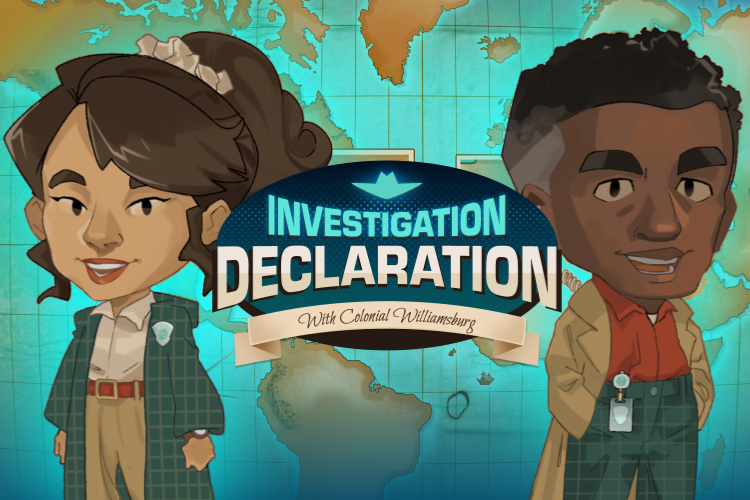

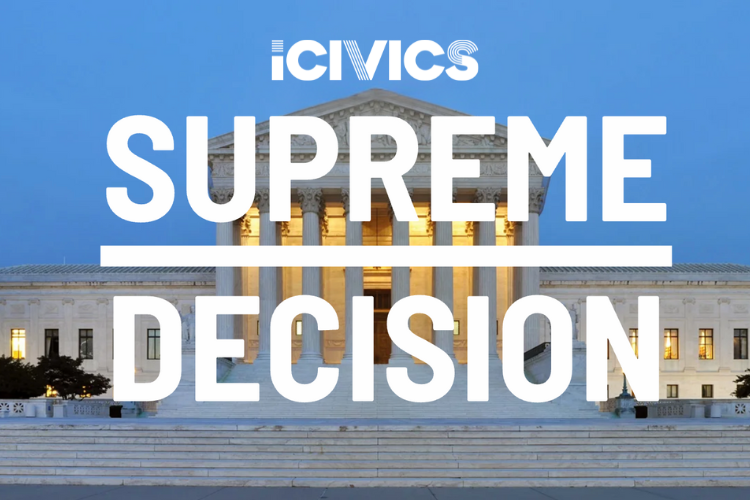

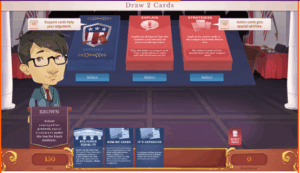 Then they must identify the Constitutional arguments used to support the argument. Once identified, they must build an argument based on Action cards and Support cards. They offer a rebuttal to the opposing side by quickly choosing correct supporting arguments. This game’s strength lies in the variety of gameplay. Not only can you choose between several cases, but you can also choose which side to support and the argument to build. You cannot simply click your way through the game successfully. It takes reading and critical thinking skills to make your way through, but it is not at such a difficulty level that the average student would quit out of frustration.
Then they must identify the Constitutional arguments used to support the argument. Once identified, they must build an argument based on Action cards and Support cards. They offer a rebuttal to the opposing side by quickly choosing correct supporting arguments. This game’s strength lies in the variety of gameplay. Not only can you choose between several cases, but you can also choose which side to support and the argument to build. You cannot simply click your way through the game successfully. It takes reading and critical thinking skills to make your way through, but it is not at such a difficulty level that the average student would quit out of frustration. and in the years since, I am continuously surprised by how few people have heard of it! Keeping the name of Supreme Decision, iCivics took the original storyline and developed a truly interactive simulation through the decision-making process.
and in the years since, I am continuously surprised by how few people have heard of it! Keeping the name of Supreme Decision, iCivics took the original storyline and developed a truly interactive simulation through the decision-making process. 